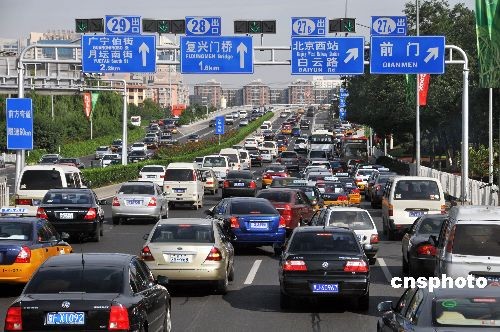2 Steps to Control Motor Vehicle Emissions
china.org.cn / chinagate.cn, January 22, 2013 Adjust font size:
Editor‘s notes: Earlier January, several consecutive days of smoggy weather choked Beijing’s air, as readings for PM2.5, or airborne particles measuring less than 2.5 micrometers in diameter, exceeded maximum reading levels in many areas throughout the city.

Vance Wagner, a senior researcher with the International Council on Clean Transportation (ICCT), proposed two steps in cutting vehicle emissions would make a near-term difference in improving air quality in Beijing and throughout China.
The first step is to issue new fuel quality standards with supporting fiscal policies. This will reduce nationwide diesel sulfur levels to below 10 parts-per-million (ppm).
"In 2011, China's State Council announced that preferential fiscal policies would be utilized to encourage the supply of higher quality fuels nationwide. However, these fiscal policies have not yet been issued; a new fuel quality standard is stalled in the review phase; and nationwide diesel fuel sulfur levels continue to stagnate at unacceptable levels of 350ppm or higher. Resolving the fuel quality issue is a critical step to facilitate continued progress in vehicle emission control in China," he explained.
The second step is to ensure that the IV truck and bus emission standards are implemented this year without further delays.
China's next stage nationwide tailpipe emission standard for trucks and buses, called "China IV" (equivalent to "Euro IV"), aims to cut emissions of PM and NOx from diesel vehicles by 30% and 80%, respectively. However, since these vehicles need to be fueled with higher quality fuel which is not yet supplied nationwide, introduction of these standards has been twice delayed across the country.
Wagner urged that in parallel with resolving the fuel quality issue, China should commit to introducing these standards without any additional delays.
"Until China takes critical steps towards reducing emissions, poor average air quality and occasional 'crazy bad' episodes will continue," he said.
Opinion articles reflect the views of their authors, not necessarily those of Chinagate.cn.

